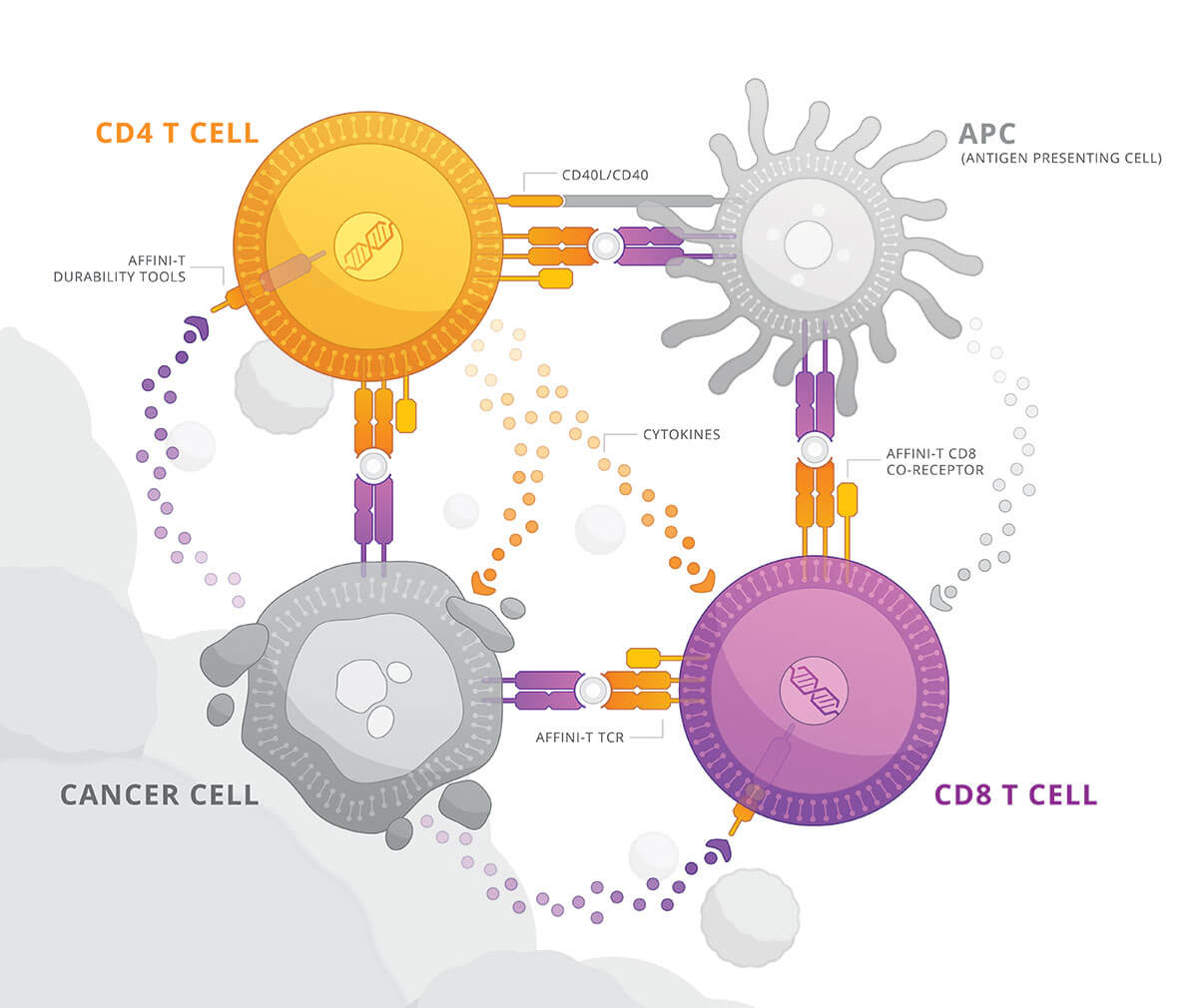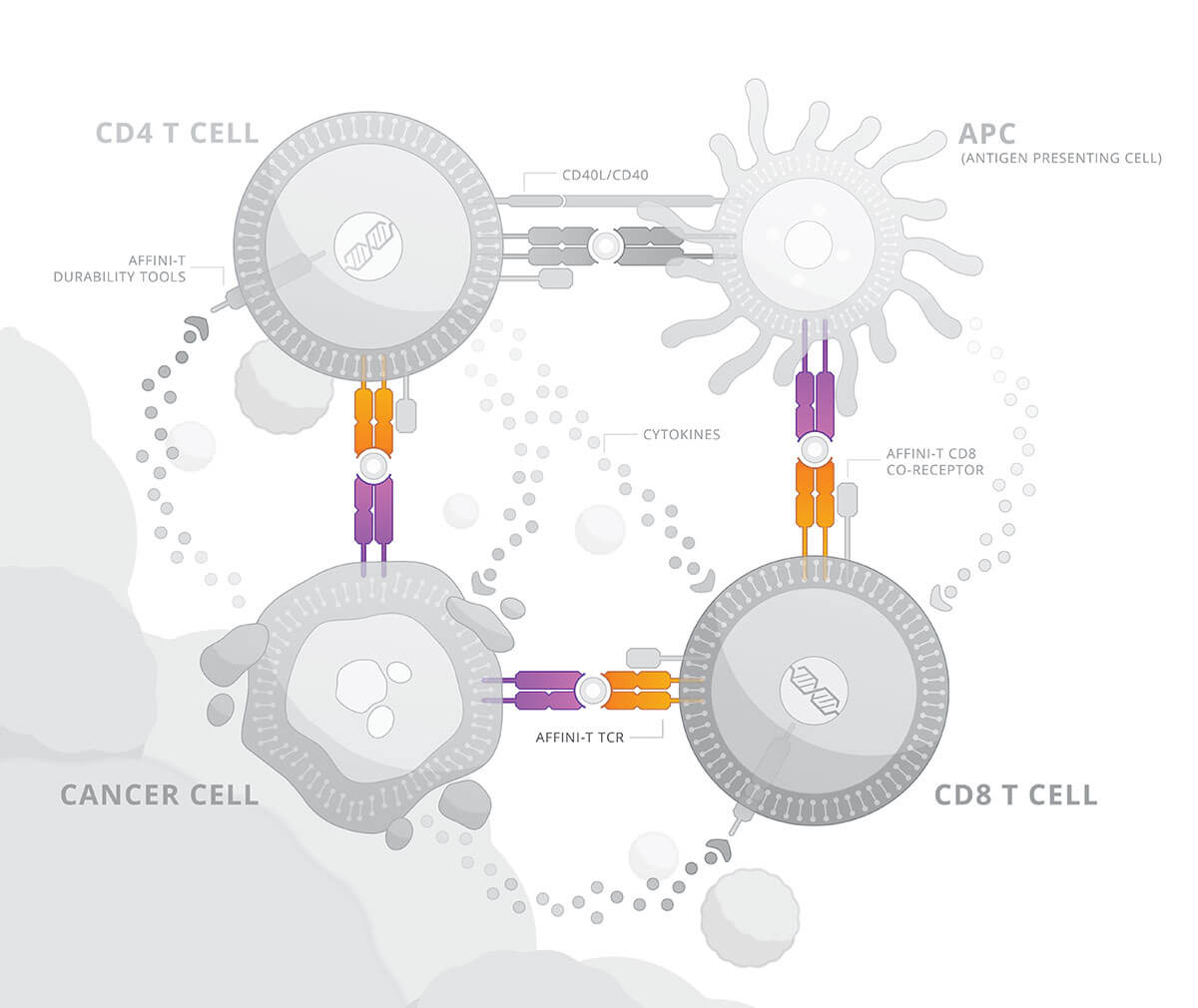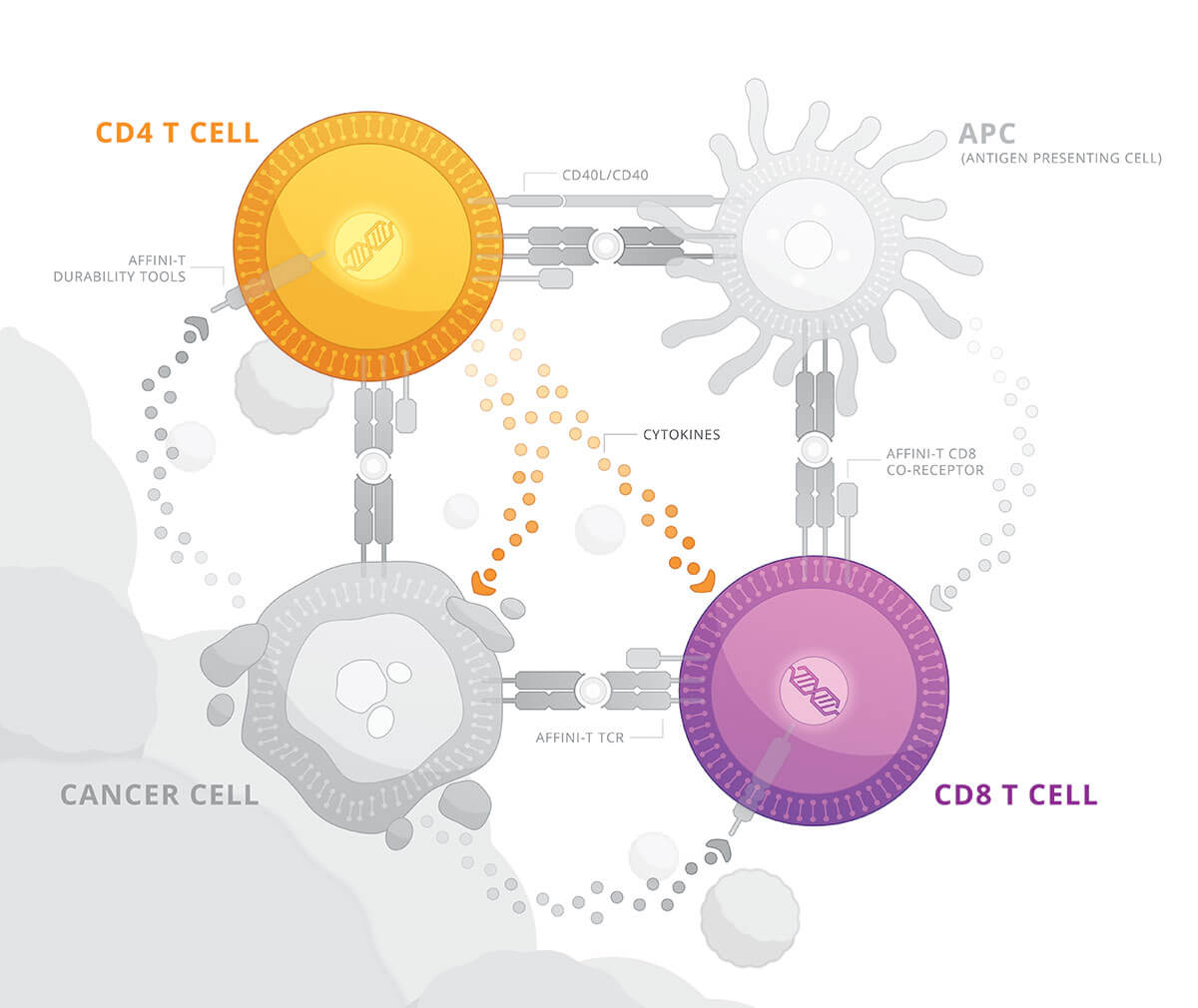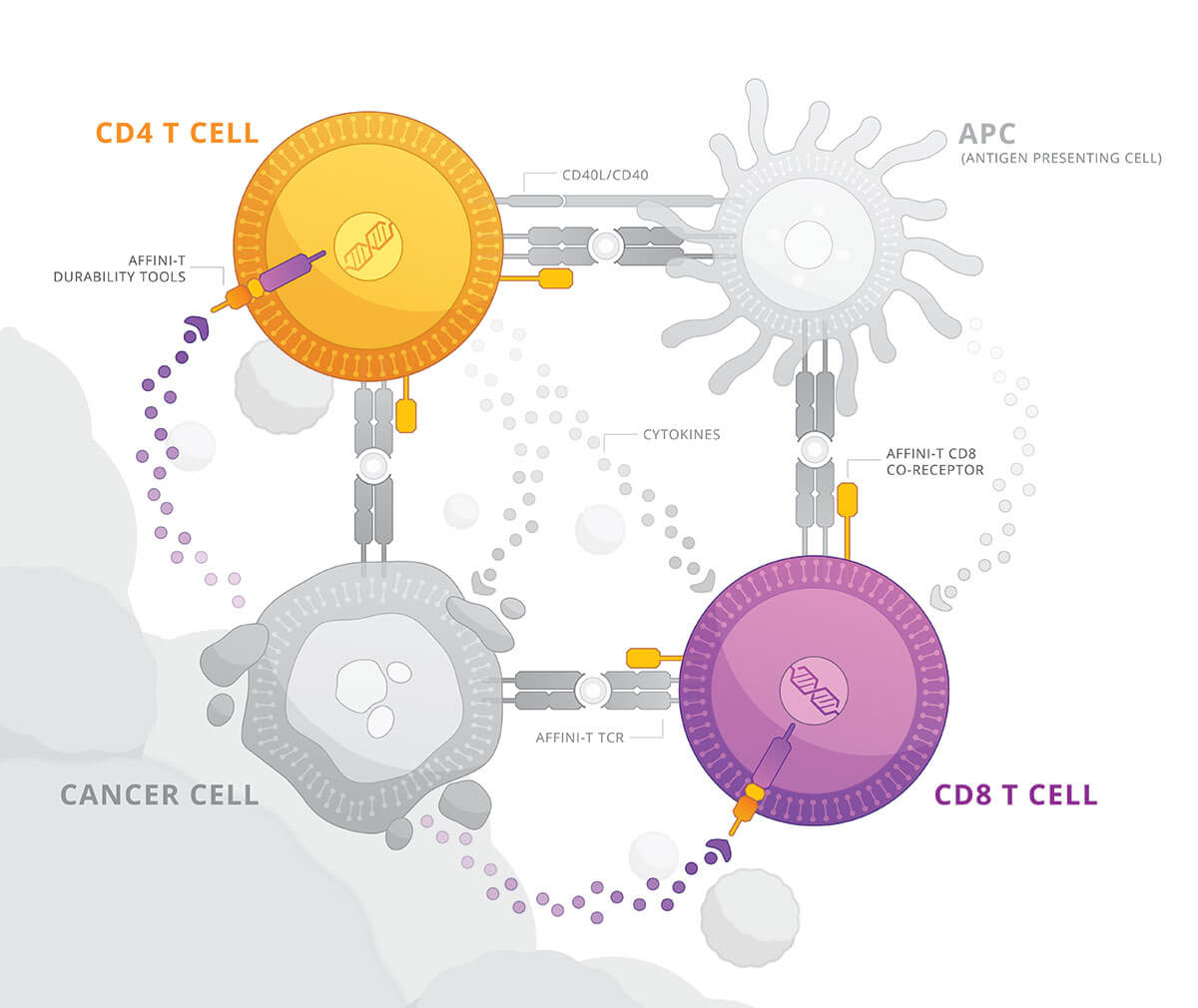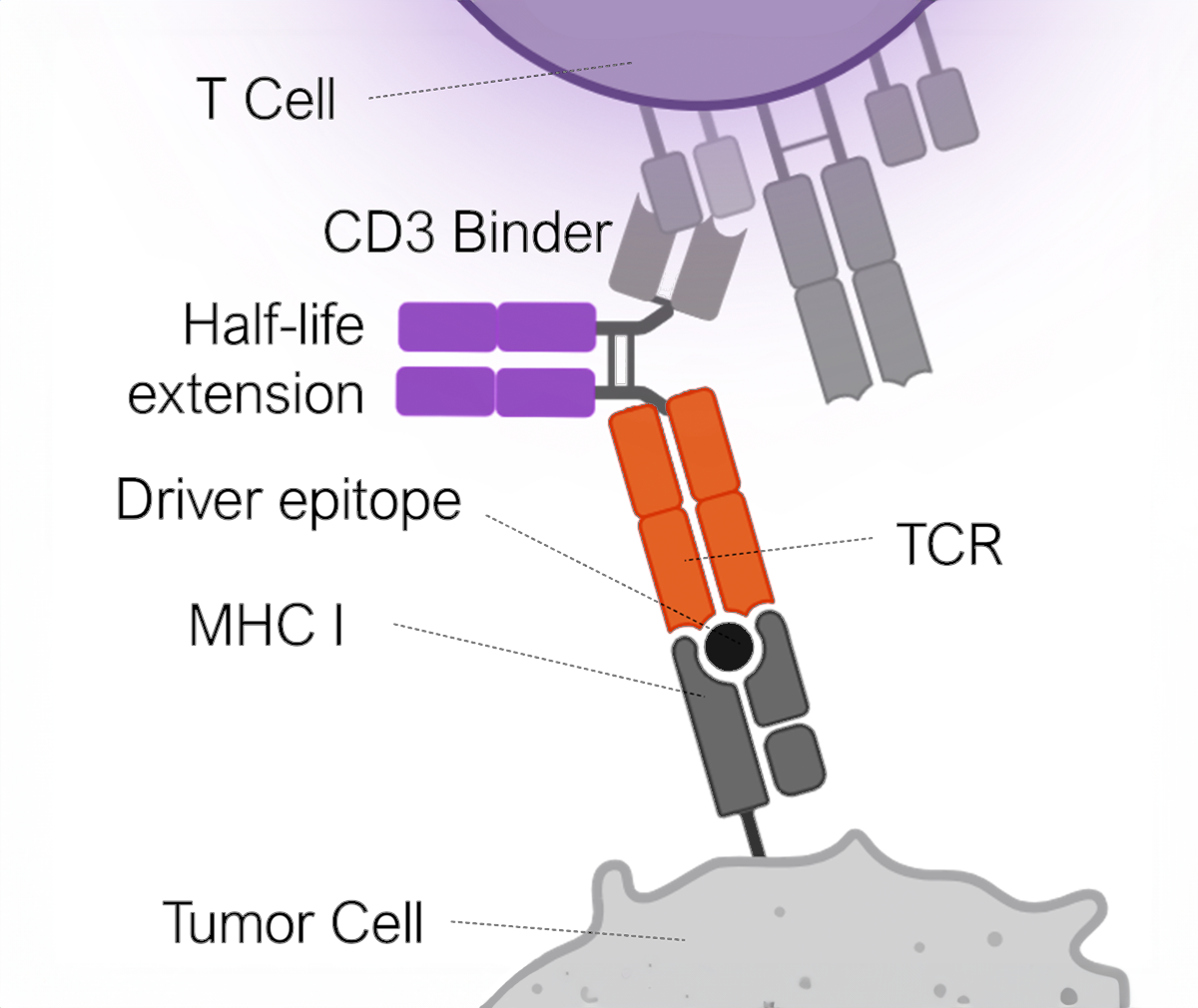Our Science
Introducing our Approach to Address Solid Tumors
Learn more about our autologous TCR-T cell therapies in our overview video:
Right Targets, Right Cells, Right Place
From advancements in gene editing and synthetic biology to first approvals in cell therapies and KRAS-targeted treatments, the cadence of innovation in cancer therapeutics has accelerated over the past decade.
On their own, these new scientific and medical developments have brought treatment options to countless patients suffering from a variety of cancer types. However, for many patients, the potential of these approaches has yet to be fully realized, especially for those patients with advanced solid tumors.
Now is the right time to leverage scientific advancements to deliver potentially curative therapies by unlocking the power of T cells and targeting oncogenic driver mutations.
- TCR-T cell therapies: Our in-house, proprietary and differentiated T cell receptor engineered T cell (TCR-T) therapy-enabling platforms () harness state-of-the-art engineering, synthetic biology, and manufacturing technologies to optimize T cell function in the immunosuppressive tumor microenvironment, aiming at sustained clinical responses in patients with solid tumors.
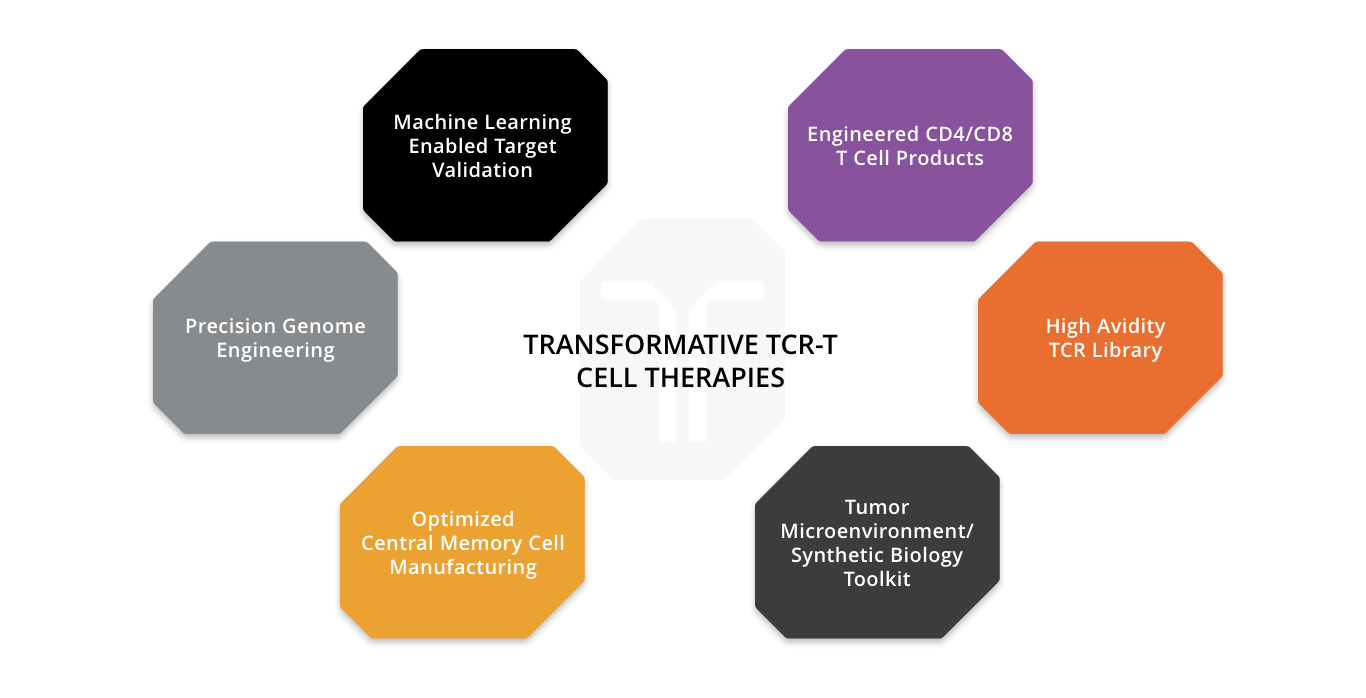
- Bispecific T Cell Engagers: Our in-house, proprietary and differentiated bispecific T Cell Engager therapy-enabling platform () harness state-of-the-art affinity maturation capabilities using yeast display modalities to identify specific high affinity TCRs and biotherapeutic technologies to produce T Cell Engager with balanced CD3 binders and extended half-life for optimal T cell engagement, aiming at sustained T cell responses against solid tumors.
Why Oncogenic Drivers
Oncogenic driver mutations, like KRAS, are exclusively expressed in tumor cells and instrumental for the initiation and maintenance of tumor growth. Found in a significant proportion of solid tumor cancers, oncogenic drivers have a varying prevalence depending on the cancer type. KRAS mutations alone are present in 30% of all solid tumors, which makes KRAS the most frequently mutated oncogene in difficult-to-treat solid tumors. These mutations are indispensable during tumor progression, creating a cancer cell dependency on mutated drivers that translates into promising targets for long-term cancer cures. Cell therapies selectively targeting oncogenic driver mutations have the potential to revolutionize cancer treatment by providing more effective and personalized therapies for patients with high unmet medical needs.
Why TCR-T Cell Therapy and bispecific T Cell Engagers
Over the last few years, engineered T cell therapies, like CAR-T cells, have shown tremendous potential in a range of malignant diseases and demonstrated that engineered T cells can induce meaningful and long-lasting clinical responses. However, two of their key limitations are that CAR-T cells require the target antigen to express on the cell surface and that the target antigen is often also expressed on normal cells. Using TCR-T cells opens a new target space by recognizing a broader range of targets, including oncogenic driver mutations, that originate from intracellular proteins inaccessible to CAR-T therapies targeting surface proteins and that are not expressed on normal cells. TCR-T cell therapies with synthetic biology have high specificity and the ability to infiltrate and persist within solid tumors, which enables T cells to thrive in the hostile tumor microenvironment and exhibit improved efficacy against hard-to-treat tumors.
Affini-T’s bispecific T Cell Engagers from the TETHER™ platform are off-the-shelf biologics that redirect and activate the endogenous T cell immune response towards cancer cells expressing specific oncogenic driver targets.
Our Platforms
Autologous TCR-T cell therapies
Our team is pioneering T cell receptor engineered T cell (TCR-T) therapies with cutting-edge, high throughput T cell receptor (TCR) discovery, synthetic biology, manufacturing technologies and gene editing enhancements to target oncogenic driver mutations that strike tumor cells at the core of their biology.
Bispecific T Cell Engagers
Our team is pioneering bispecific T Cell Engager with cutting-edge, high throughput affinity maturation T cell receptor (TCR) discovery and biologics format constructions to target oncogenic driver mutations that strike tumor cells at the core of their biology.



